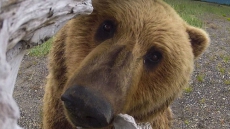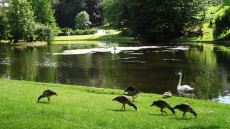Britain's University of Birmingham will put on display next month one of the world's oldest Quran manuscripts, which has been radiocarbon dated to the period between AD 568 and 645 with 95.4 percent accuracy.
The exhibition will be held from October 2 to 25 in the Bramall Music Building of the university's Edgbaston campus, according to the varsity.
Consisting of two parchment leaves, the Quran manuscript contains parts of Suras (chapters) 18 to 20, written with ink in an early form of Arabic script known as Hijazi.
For many years, the manuscript had been misbound with leaves of a similar Quran manuscript, which is datable to the late 7th century.
The manuscript is part of the Birmingham university's Mingana Collection of Middle Eastern manuscripts, held in the Cadbury Research Library.
The radiocarbon dating, carried out in a laboratory at the University of Oxford, places the leaves close to the time of the Prophet Muhammad, generally believed to have lived between AD 570 and 632.
"The announcement of our radiocarbon dating result generated huge excitement and an overwhelmingly positive response around the world," said Susan Worrall, director of special collections at the University of Birmingham.
"The manuscript is a global treasure, and we hope people will enjoy being able to view such an important document here at the University of Birmingham," Worrall added.
"The result of the radiocarbon dating of the Birmingham Quran manuscript is tremendously exciting and has clearly stimulated wider academic debate. However, at this stage we cannot draw any conclusions beyond the fact that the manuscript appears to be among the oldest in the world," said David Thomas, professor of Christianity and Islam at the University of Birmingham.
According to Muslim tradition, the Prophet Muhammad received the revelations that form the Quran, the scripture of Islam, between AD 610 and 632, the year of his death.
The age of the manuscript, as ascertained by the radiocarbon dating technique, places it to less than two decades after Muhammad's death.
The tickets for the exhibition can be booked online at the university's website.
Visitors will be allocated time slots to view the manuscript.





